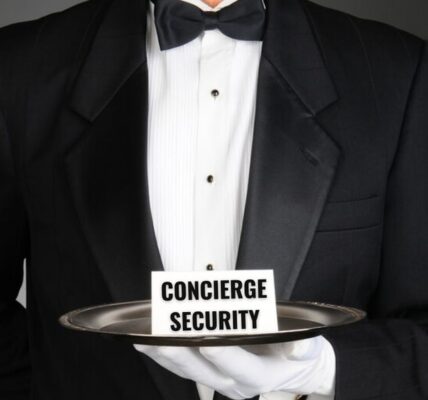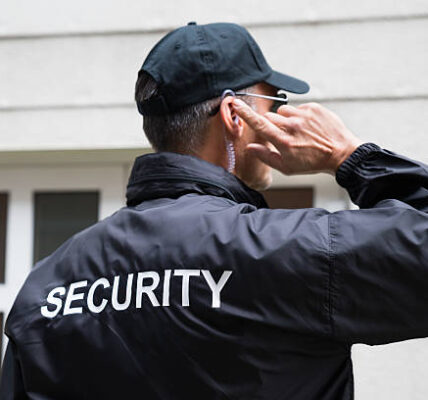Event security guards play a crucial role in ensuring the safety and security of attendees, staff, and assets at various events ranging from concerts and festivals to corporate gatherings and sports matches. However, amidst their responsibilities lies a complex web of legal considerations and potential liabilities that must be navigated carefully. In this comprehensive discussion, we will explore the legal landscape surrounding event security guards, including their duties, liabilities, and best practices to mitigate risks and ensure legal compliance.
Legal Duties and Responsibilities of Event Security Guards
Event security guards have a range of legal duties and responsibilities, which can vary depending on the nature and size of the event, as well as local laws and regulations. Some key legal duties include:
1. Maintaining a Safe Environment: Event security Melbourne guards are responsible for maintaining a safe and secure environment for all attendees, staff, and participants. This includes implementing crowd control measures, monitoring entrances and exits, and responding promptly to any security threats or emergencies.
2. Enforcing Rules and Regulations: Security guards are often tasked with enforcing event rules and regulations, such as restrictions on alcohol consumption, smoking areas, and prohibited items. They must ensure compliance with these rules while respecting the rights of attendees.
3. Preventing and Managing Security Incidents: Security guards are trained to identify and respond to potential security threats, including disturbances, fights, theft, and unauthorized access. They must take appropriate action to prevent incidents from escalating and manage them effectively if they occur.
4. Providing Assistance and Support: Event security Melbourne guards also have a duty to provide assistance and support to attendees who may require help, such as medical emergencies, lost items, or directions to facilities. They must be prepared to act with empathy and professionalism in all situations.
Liability Issues and Legal Risks
Despite their best efforts to fulfill their duties, event security guards may face various liability issues and legal risks, which can arise from:
1. Negligence: One of the most common sources of liability for event security guards is negligence, which occurs when they fail to exercise reasonable care in performing their duties. This can include inadequate training, supervision, or response to security threats, resulting in harm or injury to attendees.
2. Use of Excessive Force: Security guards must use force judiciously and proportionately to the threat posed. Using excessive force can lead to allegations of assault, battery, or wrongful injury, resulting in legal action against both the individual guard and the employing security company.
3. Failure to Provide Adequate Security: If an event security guard fails to provide adequate security measures or overlooks potential risks, they may be held liable for any resulting harm or damage. This can include breaches of perimeter security, insufficient crowd control, or inadequate surveillance.
4. Inadequate Screening and Training: Security guards must undergo thorough screening and training to ensure they are qualified and competent to perform their duties. Failure to provide adequate training or hiring unqualified individuals can increase the risk of security breaches and legal liabilities.
5. Violations of Privacy Rights: Event security guards must respect the privacy rights of attendees and refrain from engaging in unlawful surveillance or searches. Violations of privacy rights, such as unauthorized searches or dissemination of personal information, can result in legal consequences.
Mitigating Legal Risks: Best Practices for Event Security Guards
To mitigate legal risks and ensure compliance with applicable laws and regulations, event security guards and their employers should adhere to best practices, including:
1. Comprehensive Training: Event security guards should receive comprehensive training on relevant laws, regulations, and security protocols. This includes training on conflict resolution, crowd management, emergency response, and legal principles such as reasonable force and privacy rights.
2. Clear Policies and Procedures: Employers should establish clear policies and procedures for event security operations, including rules of engagement, use of force guidelines, and protocols for handling emergencies. Security guards should be familiar with these policies and adhere to them at all times.
3. Effective Communication: Communication is key to successful event security operations. Security guards should maintain open lines of communication with event organizers, local law enforcement, and other stakeholders to coordinate security efforts and respond effectively to emerging threats.
4. Regular Risk Assessments: Employers should conduct regular risk assessments to identify potential security threats and vulnerabilities at events. This allows security guards to proactively address risks and implement appropriate security measures to mitigate them.
5. Documentation and Reporting: Security guards should maintain accurate and detailed documentation of security incidents, including observations, actions taken, and any relevant information. This documentation can serve as crucial evidence in the event of legal disputes or investigations.
6. Collaboration with Legal Experts: Employers may benefit from collaborating with legal experts or consultants specializing in event security law to ensure compliance with applicable regulations and mitigate legal risks effectively.
Conclusion
In conclusion, event security Melbourne guards operate within a complex legal framework that requires careful navigation and adherence to ethical and professional standards. By understanding their legal duties and responsibilities, identifying potential liability issues, and implementing best practices to mitigate legal risks, event security guards can fulfill their mission of ensuring the safety and security of events while minimizing legal liabilities and protecting the interests of all stakeholders involved. Through continuous training, effective communication, and proactive risk management, event security guards can uphold the highest standards of professionalism and legal compliance in their roles.





